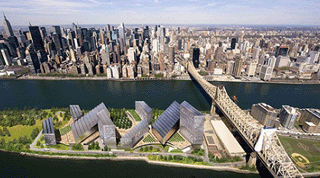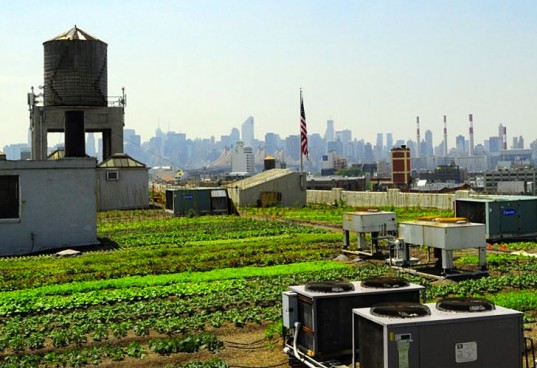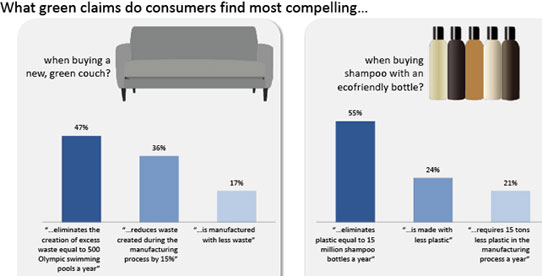- Home
- Featured (Page 3)
Featured
When Philadelphia Mayor Michael Nutter took office in January 2008, he pledged in his inaugural address to make this 6th largest city in the US, the greenest city by 2015. To do so, he created the Mayor’s Office of Sustainability and redesigned city government, appointing a team of deputy mayors to oversee and coordinate among departments. After a year of research on municipal sustainability and conferring with residents and businesses, Greenworks Philadelphia was released in 2009. The ambitious plan sets 15 sustainability targets in the areas of energy, environment, equity, economy, and engagement to make Philadelphia the greenest city in America by 2015, including: Reduce city government energy consumption 30%; citywide building energy consumption 10% Retrofit 15% of housing stock with insulation, air sealing and cool roofs Buy or generate 20% of electricity from renewable energy sources Reduce greenhouse gas emissions 20% Diverting 70% of solid waste from landfill Providing park and recreation resources within 10 minutes of 75% of residents Bring local food within 10 minutes of 75% of residents Increase tree coverage 30% in all neighborhoods by 2025 Reduce vehicle miles traveled 10% • Double the number of green jobs. Greening Storm Water Infrastructure The City’s 719-page "Green […]
Read More
Over the past two years, The Climate Bonds Initiative has been creating a new class of bonds that can finance a rapid transition globally to a low-carbon economy. "Bonds have allowed us to finance the building of Europe’s sewer systems, the growth of America’s highway system, and the financing of two World Wars. We can now use Climate Bonds to finance the quick, global transition required to head off runaway climate change," explains James Cameron, Vice Chair of Climate Change Capital. "Putting the emphasis on private financing allows a different perspective. In place of always talking about the ‘costs’ of climate change, we can talk instead about investment opportunities," notes Nick Robins, HSBC Climate Change Centre of Excellence. "The transition to a low-carbon economy presents capital with what is likely to become the largest commercial opportunity of our time: investing in clean energy and low carbon infrastructure," he adds. Most of the bonds will be bought by institutional investors, but there are plans to make them available to retail investors too. The Climate Bonds Initiative, which was initiated by the International Network for Sustainable Financial Markets, an international think tank, now operates as part of the investor-led Carbon Disclosure Project. […]
Read More

New York City is embarking on a visionary, game-changing project that will demonstrate how to dramatically grow the economy by investing in advanced education and clean energy. It’s building an entirely new applied science campus, dubbed NYCTech, to turn the city into a high tech center of innovation, and to turn its home on Roosevelt Island into "Silicon Island." The campus, which will break ground in 2015, will be among the greenest in the world and will be an economic boom for the city, generating an estimated $23 billion over the next 30 years, $1.4 billion in tax revenue, 20,000 construction jobs and 8,000 full-time jobs, according to NYC’s Economic Development Corporation. Besides being an educational powerhouse, it’s expected to spin-off about 600 companies, creating another 30,000 jobs. In addition to providing cutting edge research and teaching, NYCTech will offer support for the kinds of businesses that excel in NYC – urban planning, medicine, advertising, and finance. Services to get these businesses off the ground will include pre-seed financing, legal support, partnership building, and business competitions designed to spur innovation. An on-site tech transfer office will facilitate startup formation and technology licensing. A $150 million revolving financing fund will be […]
Read More
By Michael Schmitz, Executive Director of ICLEI USA Back in 2010, when Colorado gubernatorial candidate Dan Maes accused Denver’s bicycle sharing program of being part of an insidious United Nations conspiracy to take over America’s communities, a nation chuckled at the absurdity. "Cities Engage in Vast Biking Conspiracy (Shh!)" read a New York Times headline. More than a year later, the same bizarre conspiracy theory is no laughing matter for anyone who cares about their community’s future. Across the country, a loud minority of protestors, many aligned with the Tea Party, have made it their mission to derail not only the green programs of cities, towns, and counties, but the broader planning efforts of local governments to improve local transportation, safeguard public health, and increase economic competitiveness. Last week the success of their efforts landed them back in the Times, only now on the front page. Can We Talk About Local Solutions? We should be concerned. As our nation attempts to recover from the economic crisis and a record-breaking year of extreme weather that cost us tens of billions of dollars, locally driven solutions are the key, and healthy community dialogue about them is more important than ever. Now is […]
Read More

New York City may not have a lot of extra space for farms, but it’s got plenty of rooftops that fit the bill just fine. Urban farming is a really important trend – it not only provides fresh food locally, it eliminates greenhouse gases associated with transporting food over long distances, provides economic development opportunities, and reduces disparities in access to healthy food that’s contributed to epidemic rates of obesity and diabetes especially among low-income populations. On top of a 6-story warehouse in the borough of Queens sits the world’s largest rooftop farm – at almost an acre in size, the Brooklyn Grange has been growing 40 kinds of vegetables since it opened in spring 2010. Now, it’s gettting ready to double in size as it expands to a second roof, this one in the Brooklyn Navy Yard. Ben Flanner co-founded Brooklyn Grange after opening Eagle Street Rooftop Farm in 2009, the first rooftop soil farm in NYC. He’s got plans for more rooftop farms to make locally grown, organic food widely available, while employing urban farmers. Brooklyn Grange is financed by a combination of private equity, loans and grassroots fundraising. The farm produced crops for nine months last year […]
Read More
Some say electric vehicle acceptance is at an inflection point, whereas others say it’s far from the interests of the average US car buyer, many of whom have to returned to SUVs as gas prices have stabilized. Sales of hybrids waned last year, dropping from a measly 2.4% in 2010 to an even measlier 2.2% in 2011, according to auto market research firm, LMC Automotive. That’s largely due to a drop in Prius sales, which accounts for almost half of all hybrids sold. Sales declined 3.2% in 2011, because of manufacturing disruptions in Japan, where it’s built. The tsunami and nuclear meltdown, and the floods in Thailand, also caused shortages in many car parts and a bottleneck in batteries. Still, the Prius hit a milestone earlier in 2011 – it sold its millionth car in the US and 3 million worldwide. But the lower gas prices go, the less people are interested in those cars, even though $3.60 for a gallon of gas can quickly drain one’s wallet. With the passage of more stringent fuel economy standards under President Obama, which require model years 2012-2016 to average 35 mpg, more conventional cars now reach 40 miles per gallon, making the […]
Read More
In case you missed President Obama’s State of the Union address, here’s a summary of what he said regarding Energy, dirty and clean. Obama called for an "all of the above" energy policy to appeal to constituents across the board, as energy will be a major plank of his re-election campaign. Obama supports developing every kind of energy including oil, natural gas and renewables. He didn’t mention nuclear during the speech. But he clearly favors replacing oil subsidies with support for the clean energy industry. "We have subsidized oil companies for a century. That’s long enough. It’s time to end the taxpayer giveaways to an industry that’s rarely been more profitable, and double-down on a clean energy industry that’s never been more promising. Pass clean energy tax credits and create these jobs." He acknowledged the ideological divide in Congress is too great to "fight climate change." In his sole slip during the speech, he stumbled over the word "fight" (he said flight) and gargled the words "climate change," barely able to get them out. President Obama is in Nevada and Colorado this week, selling the energy proposals he outlined in the State of the Union address. Department of Energy Secretary […]
Read More
Negotiators are calling it a great success. The World Climate Change Summit in Durban, South Africa, ended up running overtime into the wee hours of Sunday morning. Here’s the stance countries were taking throughout most of the 2-week gathering. Here are the results: 1. The EU extended the Kyoto Protocol through 2017, but Canada and Japan pulled out. 2. Next year, negotiations will begin on a new, legally binding accord that will be signed by 2015 and come into force by 2020. 3. The new accord will include ALL countries, developing and advanced. The US, China and India agreed to participate, so all the biggest polluters are now in. 4. Concrete progress was made on rules for monitoring and verifying emissions reductions, protecting forests, transferring clean technologies to developing countries and many technical issues. Countries agreed to abide by detailed guidelines for biennial emissions reports including their actions to combat global warming. The reports will be subject to expert review and formal "consultation" among all countries, which will provide greater transparency and accountability. The Green Climate Fund, which would provide $100 billion a year to developing countries by 2020, was launched under the aegis of the UN, but many critical […]
Read More

A new study answers an elusive question – does investing in companies known for sustainable business practices result in better returns than investing in conventional companies? The study finds that yes, investing in sustainable corporations yields significantly better results both on stock and accounting performance. But like sustainability itself, those results are realized over a longer time frame. The outperformance is stronger for companies that sell directly to individuals rather than other companies – where they compete on the basis of brand reputation, and where products significantly depend upon extracting large amounts of natural resources. The key is how long the policies have been in place and how well they’ve permeated a company’s culture. Companies that long ago adopted environmental and social policies – "High Sustainability Companies" – exhibit fundamentally different characteristics than traditional firms that have never adopted these policies, conclude the researchers from Harvard and London Business Schools. High Sustainability Companies are much more likely to take a long-term view of their business. Their boards of directors are responsible for sustainability and they link top executive incentives with clear environmental and social metrics. Moreover, they are more likely to have organized procedures for engaging with stakeholders and to […]
Read More

The Green Revolution is turning out to be more of a Green Evolution, at least for now. Before 2009, the number of green products on the market was rapidly increasing as was competition among industry players to be seen as "green" among an increasingly sophisticated public. It was close to hitting a critical mass, with 76% of Americans qualifying as "light green consumers" – those who consistently seek out and buy some green products or services. But people are generally purchasing fewer green products as a result of the recession, according to a survey, "The Green Evolution" by Grail Research. That’s not surprising news as 65% of respondents say they’ve changed their purchasing behavior because of the recession – most of them buy less overall, and those products they buy are less expensive ones. Since the biggest barrier to purchasing green products has always been the perceived higher price, it makes sense that green purchases go down when times are tough. Another reason people say they don’t buy green is "low availability" of products – they aren’t as easily accessible as conventional products. That shows there’s still interest and if more companies offered such products the price would come down […]
Read More
Page 3 of 182«12345...102030...»Last »



